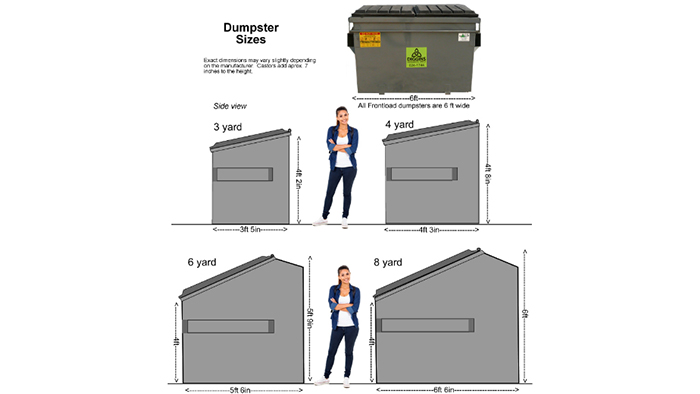California Organics Recycling – January 1 Deadline
- 10/15/2018
Covered Businesses
Retailers that generate more than 4 cubic yards of commercial waste each week will become subject to the program on January 1. Commercial solid waste includes waste generated by a store, office, or other commercial or public entity source like a school, as well as multifamily dwelling of five or more units, including paper, plastic, metals, and cardboard, among other waste streams.
Covered Waste
The program requires retailers and other regulated businesses to recycle all of their organic waste, including food waste, green waste, landscaping and pruning waste, and food-soiled paper waste that is mixed with food waste.- Food waste includes solid, semisolid, and liquid food, such as, fruit, vegetables, cheese, meat, bones, poultry, seafood, bread, rice, pasta, and oils; coffee grounds and filters and tea bags; cut flowers and herbs; and any putrescible matter produced from human or animal food production, preparation, and consumption activities.
- Green waste / landscaping waste includes grass clippings, leaves, branches, flower trimmings, hedge trimmings, and weeds.
- Food-soiled paper includes items such as soiled napkins, paper towels, tissues, and formed paper packaging such as egg cartons. Food-soiled paper does not include paper products with plastic coating, e.g., paper cups with polyethylene or other synthetic grease/water resistant coating. It is difficult to tell whether a product with some type of coating is compostable. Some wax materials are compostable.
Challenges
Shared Dumpsters
Business that share dumpsters, such as stores located at a strip mall, are more likely than other businesses to face challenges. CalRecycle explains in its Frequently Asked Questions that, if a group of businesses collectively generates more than 4 cubic yards of commercial solid waste, then the group must arrange for organic recycling services for its organic waste. Therefore, even if your business itself does not generate more than 4 cubic yards of commercial waste, if you share a dumpster, you may need to work with your co-tenants and landlord to ensure that all the organic wastes that are collectively generated are recycled. Therefore, it will take coordinated efforts to ensure that all your waste is being property disposed.
Local Implementation
Each local jurisdiction (county or city) is responsible for implementing the program through creation of an integrated waste management plan. Regulated businesses will need to review their local jurisdiction’s adopted ordinance to determine how the organics program will be implemented in their town. This localized implementation is expected to lead to inconsistent interpretations and applicability across retailers’ California stores and will require significant resources and coordination with various jurisdictions to successfully implement a compliance program.Notably, while the state’s organics program does not have direct enforcement provisions against regulated businesses, local jurisdictions are authorized to incorporate enforcement provisions into their implementing ordinances. For example, the City of Hayward has chosen to include fines for failing to recycle organic waste ranging from $500-$750 per violation, whereas the City of Del Mar has chosen voluntary compliance at this time.
Options for Compliance
While retailers will need to check local programs, CalRecycle has endorsed a broad range of options for compliance with the recycling requirement, including:- Collection services offered by a waste hauler
- Recycle its own organic waste onsite or self-haul for recycling
- Subscribe to an organic waste recycling service that may include mixed waste processing that specifically recycles organic waste
- Sell or donate its recyclable organic waste
- Anaerobic digestion
- Animal feed options for food material
- Landscaping service providers for green waste and landscape and pruning waste
- Salvage companies for nonhazardous wood waste
Angela Levin, Troutman Sanders


